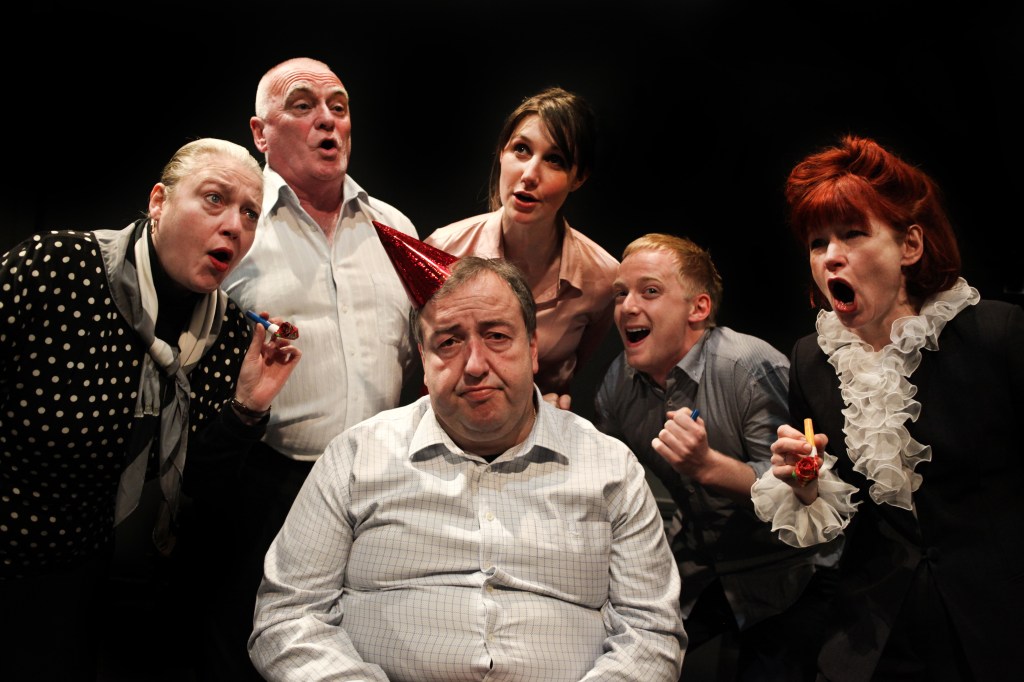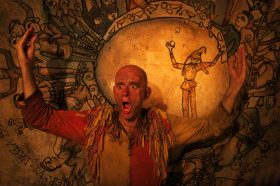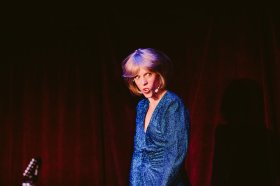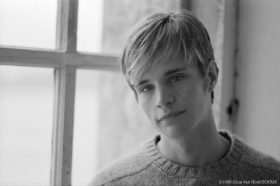Turning 21 used to represent a formal coming of age: receiving ‘the key to the door’ of adult privileges and responsibilities, as the song ‘I’m 21 Today’ commemorates.
In Australia, the Age of Majority Act 1974 means that people now legally become adults at 18 instead of 21. Nonetheless, turning 21 is still a symbolic birthday for many and highly deserving of celebration – especially for a theatre company that has weathered several storms and tempests over its 21 years to date.
‘We really wanted to celebrate the trajectory of the company, but also to celebrate the fact that we have got through challenging times,’ says Ella Caldwell, the Artistic Director of Red Stitch Actors’ Theatre, which celebrates its 21st anniversary this Thursday night (27 October).
As with human birthdays, the opportunity to celebrate 21 years – and also launch Red Stitch’s 2023 season – provides an opportunity to reflect on the growth of the theatre company so far.
‘There’s been a lot of evolution in the company over that time,’ Caldwell tells ArtsHub. ‘To flourish for this long, a small to medium organisation needs to evolve and needs to grow, and I think that that’s really due to the artists that have put in the work over the years. So it’s not just a celebration of the company, but it’s a celebration of all of the artists and arts workers and audiences and supporters that have been with us for the 21 years.’
Ensemble-led
Founded in 2001 and filling an important gap in the ecology between mainstage companies and the independent sector, Red Stitch staged its first season in 2002 in a converted church hall in St Kilda East. The intimate, 80-seat venue continues to be the company’s home today.
Built around a core ensemble of artists (with some of the founding ensemble members, including Brett Cousins, David Whiteley and Caldwell herself, still an active part of the company today), Red Stitch quickly developed a reputation for staging the best in new international theatre, with each ensemble member bringing new ideas to the table alongside suggestions of new works to stage.
Over time, new actors joined the ensemble, as others left or went on sabbatical, ensuring ‘fresh perspectives that are really healthy for the organisation,’ Caldwell explains.
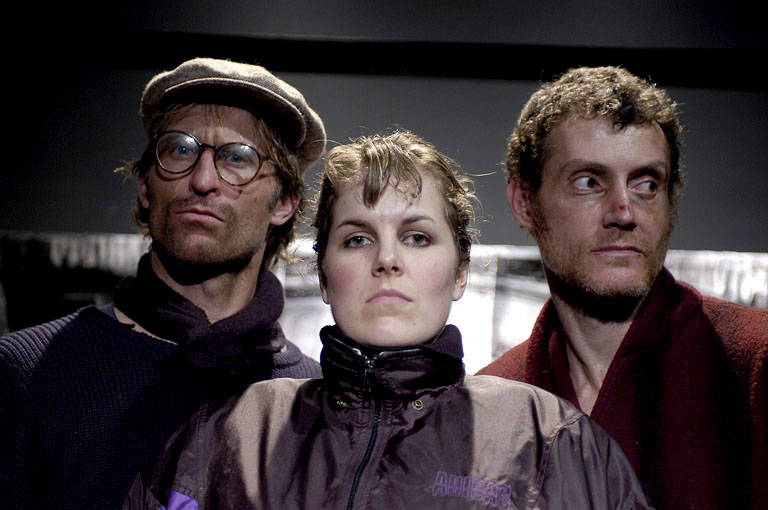
‘They bring in a vibrant new energy but also new types of critical thinking, because some of them, like the members of our graduate program, have just come out of training. And they’re contributing every week in our discussions about the direction of the company and which plays we’re going to program and the different challenges that are coming up. So there’s kind of this pot of mixed perspectives and opinions that really, I think, has probably been one of the greatest strengths of the organisation [over time],’ she says.
Dark days…
Other changes to the company since 2001, such as the loss of its Australia Council funding in 2016 (a direct result of former Arts Minister George Brandis’ infamous $104.8 million cuts to the Australia Council the previous year), and the more recent impact of COVID, have been far less welcome.
‘We’ve had extremely dark moments – moments where you’re on a Zoom meeting for instance, and you haven’t been able to sit down in a room together and everyone’s feeling a bit bleak because of the state of the industry – but every time, what’s come out of that is that we’ve all felt quite fortunate to be able to be there for one another.’
Read: How to establish an indie theatre company that endures
Sustaining Red Stitch Actors’ Theatre and its ensemble throughout good times and bad has been the knowledge that what the company does, and what its ensemble members do, matters.
‘The question you have to return to is: why is this important? Why is what we do important? What do each of these artists here believe in so much that they’re continuing to come back and commit to [Red Stitch] in the face of challenges like, “When will we get back on stage?” COVID really was, in a way, an opportunity for us to reflect on the importance of the work that we do. And I think that’s always a good thing for an organisation, at any stage of its trajectory, but particularly a couple of decades in.’
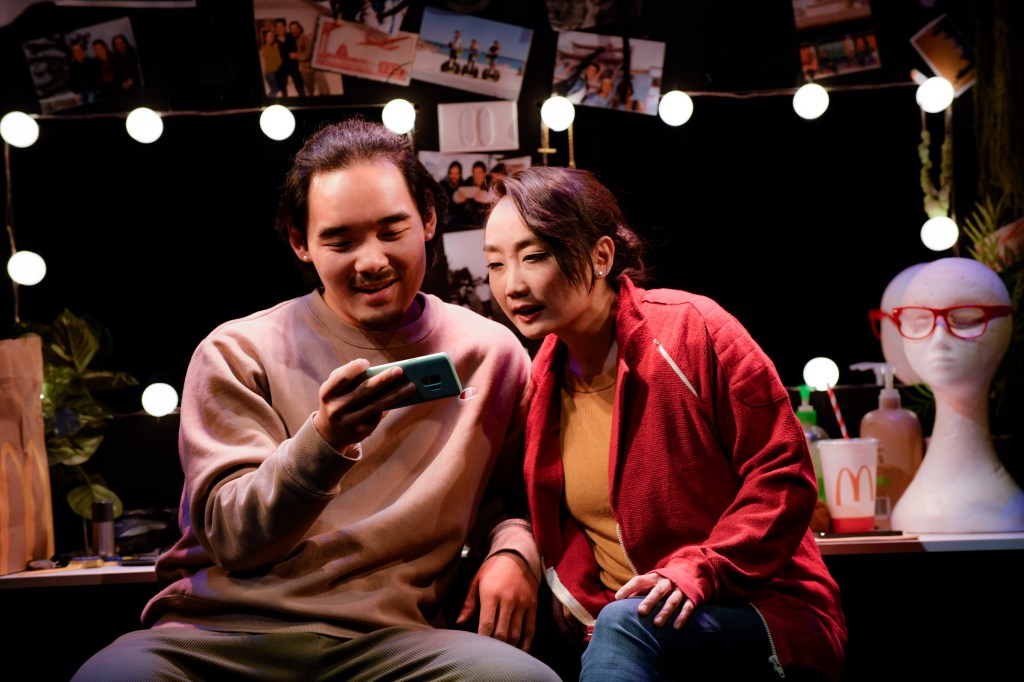
…and a bright future
One of the most significant changes to Red Stitch’s programming model over its 21 years to date has been the introduction of new Australian work – developed through the company’s INK program – alongside the new international works that helped establish the company’s reputation.
The first play the company produced and developed in-house, under what was then known as Red Stitch Writers, was Tom Holloway’s acclaimed Red Sky Morning, followed by Melissa Bubnic’s poignant and poetic Stop. Rewind.
‘Red Stitch was always built on the idea that actors actually have a very strong connection to playwrights and to their words, so we were always responding to texts and going, “We’ve got to put this on,” and bringing the directors in and bringing the designers in. And from there, I guess, the company gained confidence and experience and, with half a decade under its belt, started working with local playwrights,’ Caldwell says.
In 2023, two works developed through the INK program have their world premieres at Red Stitch: Mary Anne Butler’s award-winning Wittenoom, a mother-daughter drama set in the remote WA mining town now synonymous with asbestos and malignant mesothelioma, and Emily Sheehan’s Monument, a new comedy exploring power, privilege and persona.
Read: Career spotlight: Playwright
‘When we have writers working on a play with us, sometimes it’ll be two years, sometimes it’ll be six years of development, but it means they are working with actors that they want to have in the roles. They’re working with people who are invested in this play going on,’ says Caldwell.
In the case of Wittenoom, ‘the story came to [Butler] when we were all in lockdown through some experiences and conversations she had personally … We did a reading a few months ago, and everyone was just extremely enthusiastic; even just a cold read was really engaging for the whole room. People were excited just from hearing the words on the page.’
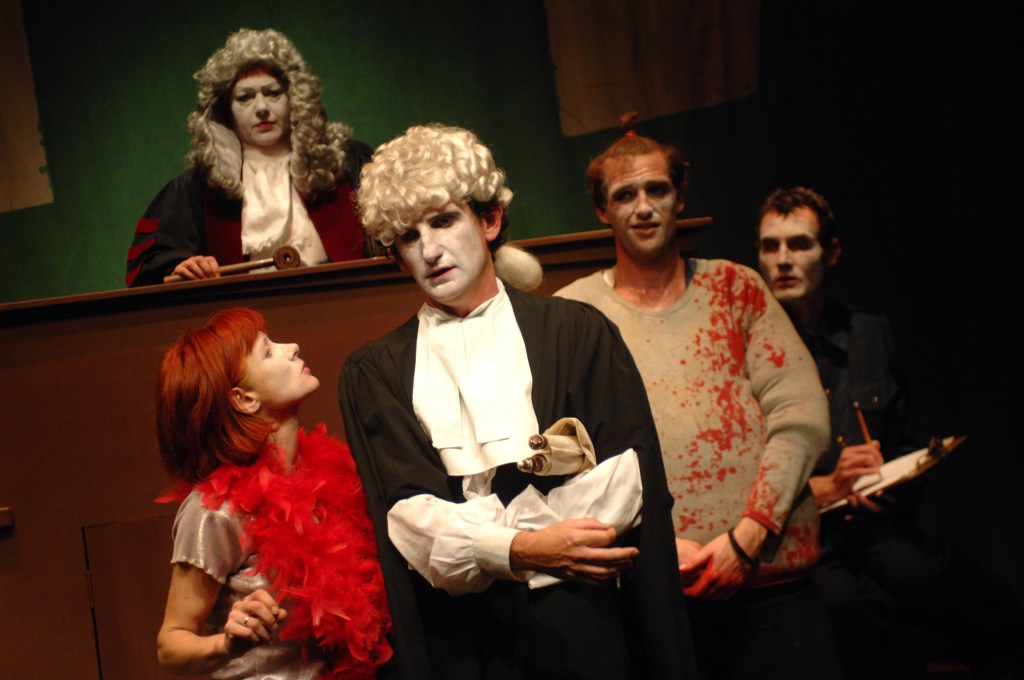
While Wittenoom is ‘poetic and beautiful … with a really relevant political line running throughout the journey of the mother and daughter characters,’ Caldwell describes Monument as a comedy ‘about a world leader and her makeup artist. It’s delicious to watch but it is very intelligent, and what Emily’s doing is that she explores moral and ethical dilemmas around politics and celebrity in a way that is fun and sassy. And her characters – particularly the character of Rosie the makeup artist – the way that she’s written, she just leaps off the page.’
Extraordinary writing
These two new Australian works will be presented alongside US playwright Sylvia Khoury’s Pulitzer-finalist drama, Selling Kabul, a timely work exploring the life of an Afghan family in Kabul, 2013, when the US had just begun a major withdrawal of troops from Afghanistan.
Described by The New York Times as ‘a play as tautly made as a military bed’, Selling Kabul opens in late April with Red Stitch ensemble member Khisraw Jones-Shukoor in a lead role. More productions for 2023 will be announced in the coming months.
‘We really want to be bringing our audiences back and get them into the habit of going to the theatre a few times a year, but we also understand that there’s a greater need for flexibility. So the three-plus play path that we’ve launched this week … means that people can still be supporting the company without having to jump in for the whole year at the very start,’ Caldwell explains.
Regardless of which plays are programmed, the mix of new Australian works alongside international texts is set to continue throughout 2023.
‘We can be putting extraordinary Australian writing on the stage next to extraordinary international writing because this really is where it belongs,’ Caldwell says.
‘And it’s exciting to put on a play that’s just come out of a really edgy theatre in the US or the UK or wherever, but it’s just as exciting to have that work being in conversation with what the writers here in this country are doing right now as well. That’s something that we’ve been doing very consistently for a number of years, and we’ll continue to have local and international plays talking to one another in this season.’
Learn more about Red Stitch Actor Theatre’s 21st anniversary program.
